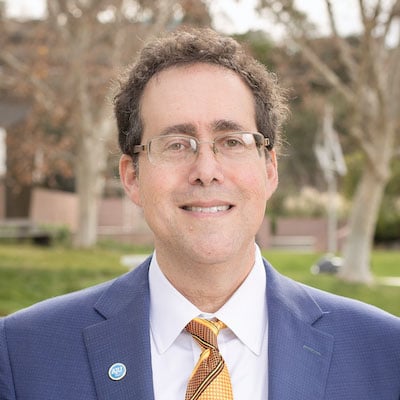 Many differend heads connected with a door on dark background
Many differend heads connected with a door on dark background Many of us celebrate the launch of Passover with seder meals and a wide array of special guests: family, friends, colleagues and dear souls who don’t have other commitments that night. We gather — a ragtag representation of one big tribe, the Children of Israel. Around a crowded table, we share a magical evening, re-enacting the event that made us a united people in the first place: leaving Egypt together, crossing to freedom together, dancing in freedom together.
But we won’t be together this year.
The surge of the coronavirus — not mentioned in the comprehensive list of biblical plagues — has forced the entire world to shelter and separate. Guess who’s not coming to dinner? Pretty much everyone.
For most of us, this social separation is unprecedented. Finding a place to share a seder might feel pressured, and sometimes may feel forced, but we all seek or offer invitations. We all reach out to our broader circle of care, and we aim to find a place to join with others to celebrate Pesach and its tale of freedom in community. Almost every synagogue and Jewish community offers to connect hosts with guests so we don’t have to hold a seder alone.
Is it even possible to hold a solitary seder? Turns out, it is and it isn’t.
According to Jewish law and custom, it is possible to hold the seder alone. The haggadah, the rabbinic script for enacting this ancient story, doesn’t require a minyan (a quorum of 10 adults) for the seder to proceed. In fact, the only difference numbers make in the ritual is there have to be three people present to recite certain lines in the Hallel (psalms of praise) responsively. None of the other prayers or songs requires a minimum number of participants. If one is alone for the seder, it is fine to recite the Mah Nishtanah (Four Questions) to oneself!
The haggadah goes out of its way to remind us everyone should give themselves the gift of a seder: “Therefore, even if we are all wise, all understanding, all old, all knowledgeable in Torah, it is still incumbent for us to retell the story of the Exodus from Egypt. It is praiseworthy for everyone to expand and embellish the story.”
On the other hand, it also is not possible to hold the seder alone. Every Passover, without exception, we throw open our doors and extend an invitation to the prophet Elijah, the harbinger of redemption.
According to biblical tradition, Elijah never died. He wanders the Earth, appearing from time to time, reminding us not to give up on better days ahead, messianic days.
After the meal and final blessings, Jewish tradition asks us to set aside a fifth cup, the Cup of Elijah, and to invite Elijah into our homes, insisting redemption, liberation, wholeness is on the way. We dare not surrender.
Guess who’s not coming to dinner? Pretty much everyone.
This year, as we recline in our chairs, sheltered and separated, we will remember that better tomorrows are coming, that this virus will not keep us isolated forever. Just as Elijah reminds us we have a role to play in the advance of redemption, we affirm that we all have a role to play in containing this pandemic, in rolling it back and in caring for one another along the way.
This year, in addition to opening our doors, let’s open our hearts as well — to the health care workers tending the sick and suffering; to the volunteers and aides tending our loved ones who are old, have special needs or who require additional attention. Let us open our hearts to one another as we struggle against separation and loneliness, as we fight off disappointment and despair.
Elijah is our guest of honor, especially this year. As we open our doors, we affirm no one is ever truly alone at a seder. Our people around the world, all of our ancestors who forged a path of endurance and light, all of our sages, poets, pioneers and visionaries will be with us. Along with the family and friends who can’t sit around our table or crowd into our usually overstuffed rooms, they will be in our hearts, our souls and our song.
Let them in. Embrace them with all you’ve got. Know that redemption is coming. There will be better days. n
Rabbi Bradley Shavit Artson (bradartson.com) holds the Abner and Roslyn Goldstine Dean’s Chair of the Ziegler School of Rabbinic Studies and is vice president of American Jewish University in Los Angeles.























 More news and opinions than at a Shabbat dinner, right in your inbox.
More news and opinions than at a Shabbat dinner, right in your inbox.